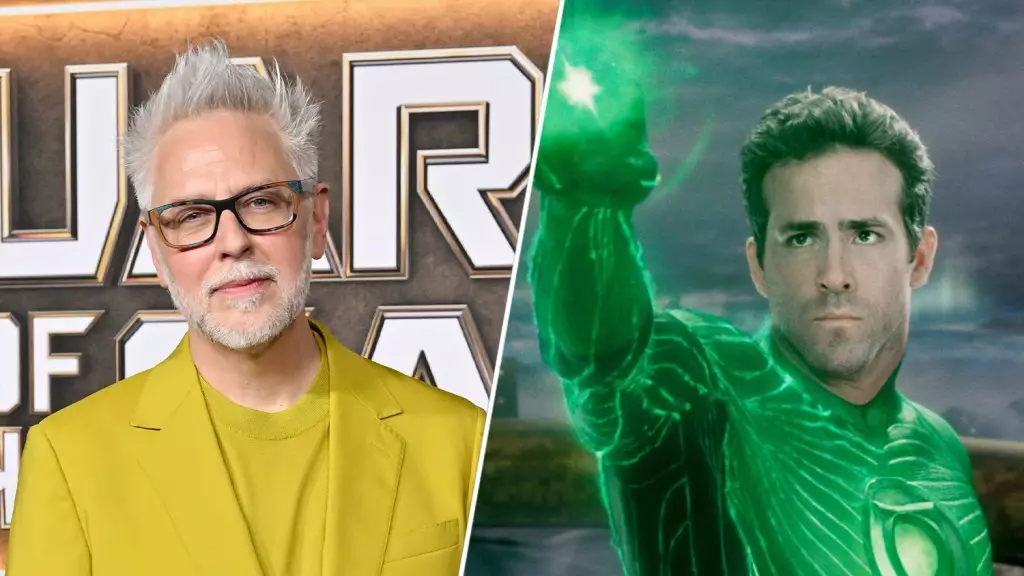Ryan Reynolds, best known for his irreverent portrayal of Deadpool, has made headlines once again for his staunch refusal to wear the Green Lantern ring again. The recent admission from DC Studios co-head James Gunn sheds light on Reynolds’ unwillingness to revive his role as Hal Jordan, a character he played in the maligned 2011 film directed by Martin Campbell. Gunn’s lighthearted inquiry about Reynolds rejoining the superhero franchise was met with a sharp retort that aptly reflects the actor’s feelings about the experience.
It’s important to consider the potential for studio executives and actors to have fun and joke about past roles, especially when considering the gravity that comic book adaptations hold in popular culture today. Reynolds’ immediate, almost visceral reaction—“Get the f— out of here!”—reveals not just humor, but an underlying sentiment of discontent regarding his past decisions. This response is emblematic of an actor who has clearly moved on.
The 2011 Green Lantern film was widely panned upon its release, boasting a meager 25% rating on Rotten Tomatoes. This critical drubbing was compounded by disappointing box office returns—$237 million globally—offering a stark contrast to the soaring successes of other DC and Marvel adaptations. It’s unsurprising that Reynolds would want to distance himself from a project that left such an indelible mark on his career, particularly as he has evolved into a beloved figure in the superhero genre through his role as Deadpool.
Yet, in reflecting on the Green Lantern project, it is worth noting that Reynolds did find personal joy despite professional setbacks. The film inadvertently led to his relationship with actress Blake Lively, showcasing how not all outcomes in Hollywood are determined solely by box office performance or critical acclaim. In situations like these, it becomes clear that the human element often transcends the involved narratives, serving as a reminder of the complexity of actors’ careers.
Adding further intrigue to the superhero landscape is HBO’s announcement of a new Green Lantern series titled “Lanterns.” Scheduled to air under the guidance of experienced creatives including Chris Mundy, Damon Lindelof, and comic book writer Tom King, this series could offer a revitalized take on the Green Lantern mythology. The move towards developing this series indicates that while Reynolds may have closed the door on his version of Hal Jordan, the Green Lantern legacy continues to be of interest within the DC universe.
With Warner Bros. Television and DC Studios behind this new endeavor, fans may witness a landscape evolved beyond the constraints of previous failures. It also highlights a wider trend within superhero narratives: to embrace and re-imagine, rather than be shackled by past disappointments.
While the Green Lantern remains a controversial chapter in Ryan Reynolds’ career, it seems clear that he is ready to channel his talents elsewhere. His ongoing success as Deadpool and the broader evolution of the superhero genre indicate a future ripe with potential—not just for Reynolds, but for the entire DC franchise as well.

